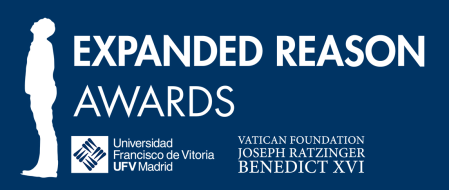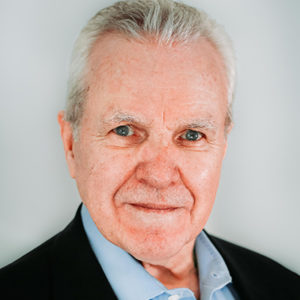Tagged: “Forgiveness Process”
Does forgiveness start with bearing the pain so that pain is not cast onto others?
Bearing the pain is part of the forgiveness process, but it is not the start of that process because bearing the pain is difficult for most people. The beginning of forgiveness is to understand clearly what forgiveness is and is not. To forgive is to make a deliberate choice to be good to those who are not good to you. To forgive is not to excuse the behavior, to abandon justice, or to automatically reconcile if the other’s behavior is dangerous for you. Once the person understands what forgiveness is, I recommend a step prior to bearing the pain: Commit to doing no harm to the one who hurt you.
For additional information, see Forgiveness Defined.
Dr. Robert Enright and Dr. Richard Fitzgibbons Receive 2019 International Research Award
Two members of the International Forgiveness Institute (IFI) Board of Directors have been selected to receive an international award recognizing their Forgiveness Therapy research. Dr. Robert Enright, founder of the IFI, and Dr. Richard Fitzgibbons, MD, Director of the Institute for Marital Healing just outside Philadelphia, PA, have been named the 2019 recipients of the Expanded Reason Award.

The prestigious award is presented annually by the University Francisco de Vitoria (Madrid, Spain) in collaboration with the Vatican Foundation Joseph Ratzinger/Benedict XVI (Rome, Italy) “to recognize and encourage innovation in scientific research and academic programs.”
Recipients (only two researchers are selected worldwide each year) are determined by an international panel of seven judges who examine books and journal articles to ascertain who across the globe is conducting innovative and exceptional research that cuts across the social sciences. The award criteria includes the challenge of establishing a dialogue of particular sciences with philosophy and theology in line with the thought of Pope Benedict XVI who led the Catholic Church from 2005 – 2013.

Dr. Richard Fitzgibbons
Drs. Enright and Fitzgibbons co-authored the book Forgiveness Therapy: An Empirical Guide for Resolving Anger and Restoring Hope. The book, published by the American Psychological Association (APA) in 2015, signifies that Forgiveness Therapy is now rightfully taking its place alongside such historically accepted therapies as Psychoanalysis, Humanistic Psychotherapy, and Cognitive Behavioral Therapy.
Forgiveness Therapy is actually a new and updated version of a previous book by Drs. Enright and Fitzgibbons, Helping Clients Forgive, that was published in 2000, also by the APA. The new 358-page volume helps clinicians learn how to recognize when forgiveness is an appropriate client goal and provides concrete methods for working forgiveness into therapy with individuals, couples and families. It is grounded in theology, philosophy, psychiatry, education and the social scientific method.
Dr. Fitzgibbons is a long-time research associate of Dr. Enright’s. Trained in psychiatry, he has worked with hundreds of couples over the past 40 years. His book, Habits for a Healthy ![]() Marriage: A Handbook for Catholic Couples, is available at Amazon.com.
Marriage: A Handbook for Catholic Couples, is available at Amazon.com.

Dr. Robert Enright
Dr. Enright, in addition to founding the IFI 25 years ago, has been a professor with the University of Wisconsin-Madison School of Education’s highly-regarded Department of Educational Psychology since 1978. He is the author or editor of seven books and more than 150 publications on social development and the psychology of forgiveness. He pioneered forgiveness therapy and developed an early intervention to promote forgiveness–the 20-step “Process Model of Forgiving.”
Both Dr. Fitzgibbons and Dr. Enright have been invited to attend and formally accept their awards at the Expanded Reason Awards Ceremony on Sept. 19, 2019 at the University Francisco de Vitoria in Madrid.
The Expanded Reason Awards recognize extraordinary teachers and researchers.
The Awards Ceremony is part of the 3-day International Expanded Reason Congress in Madrid that brings together university researchers and teachers from all over the world. The Congress seeks to deepen the dialogue among science, philosophy, and theology through presentations, roundtable discussions, and workshops. Dr. Fitzgibbons and Dr. Enright will be outlining the concepts behind their winning project in a talk that will also be published in the official proceedings of the Congress.♥
What is the difference between “not taking it seriously” and forgiving?
To “not take it seriously” implies neutrality. When we forgive we never are neutral regarding the person who hurt us. We are hurt because what happened matters (for fairness) and whom the person is matters (because we share a common humanity). Thus, forgiveness is linked to: a) expecting fairness; b) having a sense of respect and even love toward the other; and c) self-respect and love. None of this is neutral and should be taken seriously. The key in forgiveness is not letting what matters destroy us or the other.
Learn more at Forgiving is not. . .
As people start to practice forgiveness, it seems to me that they often develop in humility, too. I am wondering what your view is on this.
Yes, I do see that as people develop in the virtue of forgiveness that they often grow in humility. Humility is not something to be condemned, as the 19th century philosopher Nietzsche seemed to do. Humility is not a quality of allowing oneself to become a doormat for others. Instead, it is a stance of not thinking of oneself as superior, or trying to continually win regarding one’s relationship with others. Humility is seeing that one is neither superior or inferior to others, but instead that we all have built-in worth. Forgiveness fosters this idea that all people have worth, including those who have acted unfairly toward the forgiver. Thus, humility and forgiveness share this common view of all people.
For additional information, see: Learning to Forgive Others.
Is it possible to forgive someone who is deceased? If so, what would the forgiveness look like?
Yes, you can forgive someone who is deceased. Forgiveness includes thoughts, feelings, and behaviors. One can think of the other person as possessing inherent (unconditional) worth. One can cultivate feelings of compassion for the person, not because of what he or she did, but in spite of this. Even behaviors can be a part of the forgiveness. For example, one might donate to the deceased person’s favorite charity. One might say a kind word about the deceased to family members. Depending on one’s religious beliefs, the forgiver can offer a prayer for the one who died.
For additional information, see: Forgiveness Defined.



